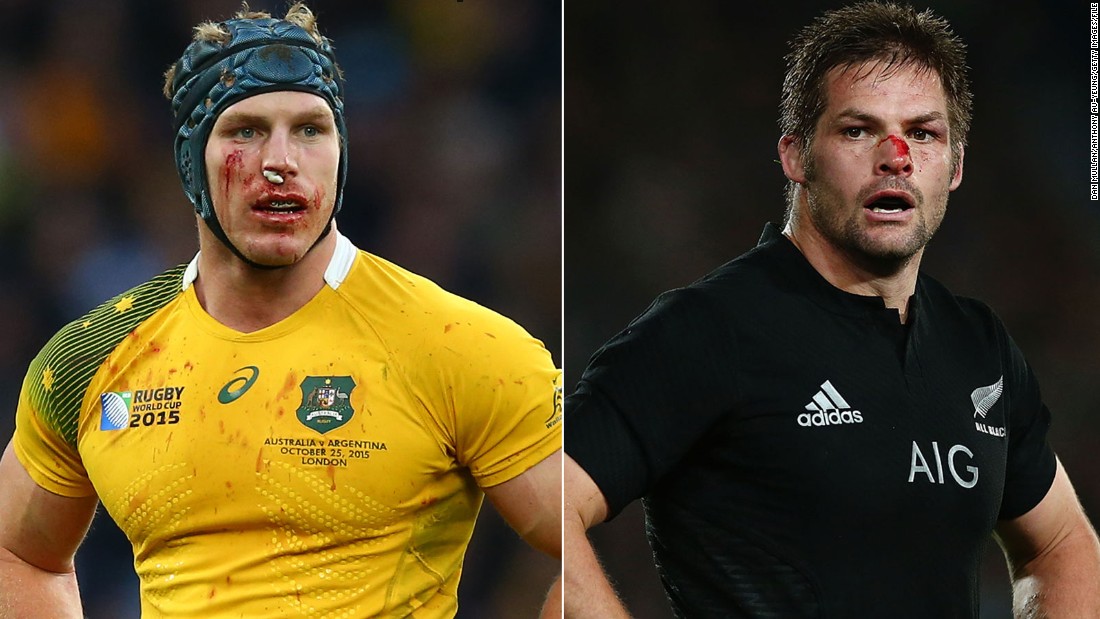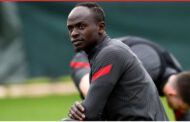This is the moment rugby fans have been anticipating for four years.
After 47 matches played by 20 nations in the past six weeks, attended by over 2.3 million people, the 2015 Rugby World Cup will be down to just two teams on Saturday — one of which is guaranteed to make sporting history by winning the final at Twickenham.
Can New Zealand’s All Blacks become the first side to retain the title? Or will Australia’s Wallabies win the race to become the first country to be crowned champion on three occasions?
CNN Sport talks to past winners of the tournament and breaks down the key clashes ahead of the Down Under showdown at the home of English rugby.
Brad Thorn, former All Blacks forward
“Our job as an All Black is to win. That’s it. Win. Don’t try hard and lose. Win — that’s the pass mark,” says the 40-year-old, who represented Australia in rugby league before switching codes and helping his native New Zealand end a 24-year wait for World Cup success on home soil in 2011.
“If they get this job done, back-to-back World Cups, the first time it’s ever been done, they’ll have the most World Cups — three, South Africa and Australia have two each — and they’ll be considered one of the greatest teams of all time.”
George Gregan, former Australia captain
“It’ll go right down to the wire,” says Gregan, who was a member of the Wallabies team that won the 1999 World Cup, and was skipper in the 2003 final defeat against England.
“They’ve played twice this year and won one each — the Wallabies beat the All Blacks in Sydney and the All Blacks thumped the Wallabies a week later at Eden Park, but it was a different team,” he adds.
“Does that mean anything? No, all it means is they know each other’s game and what’s required against each other, and it comes down to the best performer on the day.”
Lawrence Dallaglio, former England captain
“You’ve to to remember that New Zealand has only lost three matches in the last 53 under Steve Hansen, so that’s a pretty impressive record,” says the 43-year-old, who played in every match of his country’s 2003 winning campaign in Australia. referring to the All Blacks head coach.
“But one of the teams that’s beaten them has been Australia, and the only team to beat them this year. That’s what makes this match very exciting.
“On balance, NZ are favorites, you have to say, but there’s always that little bit of doubt because Australia are one of the few teams in the world that have the belief and the ability to win.”
“It’s deservedly between the best two sides of the last 12 months. It’s quite cool that the two best teams who have shown the best form are meeting each other in the final,” says Smit, who led the Springboks to their second title in 2007.
“It’s a disappointment for the South African point of view, and everyone else’s point of view, but we’ve seen two really good sides playing really good rugby, now playing in the World Cup final, which is going to be great for the tournament as a whole.”
“New Zealand will start the final as favorites and are sure to have taken notice of the fact that Australia conceded eight penalties in their own half against Argentina (in the semifinal) — four of them were under pressure from the Pumas’ superior scrummaging. That could be something the All Blacks look to exploit,” says Thomas.
“While Adam Ashley-Cooper’s hat-trick of tries against Argentina grabbed the headlines, it was the return from injury of back-row forward David Pocock that was the key to the Wallabies’ success. His four turnovers was more than double anyone else on the pitch and he also made 14 tackles, the third best in the game.
“Australia is the only team to have a winning record against the All Blacks at the World Cup and is perhaps the only team not phased by their fearsome reputation.”
The national rivalry
New Zealand is Australia’s smaller neighbor both geographically and in terms of sporting resources, but in rugby terms it has held the ascendancy in recent years — the Wallabies’ two World Cup successes were in the 1990s.
Their rugby rivalry is intense, but has never reached the levels of bitter acrimony that followed the infamous “underarm bowling” incident instigated by Australian cricket captain Greg Chappell against the Kiwis in 1981.
There had been some talk of upping the ante for the final by also putting the Bledisloe Cup at stake. The trophy, contested by the two teams since 1932, has been held by New Zealand for 12 years — and for some, keeping it means as much as lifting the Webb Ellis Cup.
The captains
New Zealand’s 2011-winning skipper Richie McCaw has postponed any announcement about his future until after the tournament, but this is expected to be the inspirational 34-year-old’s final, record-extending 148th international appearance. He will match Jason Leonard’s record of 22 World Cup caps.
The flanker’s battle at the breakdown with Aussie rivals Pocock and Michael Hooper will have a big influence on the final outcome.
-CNN Sports














